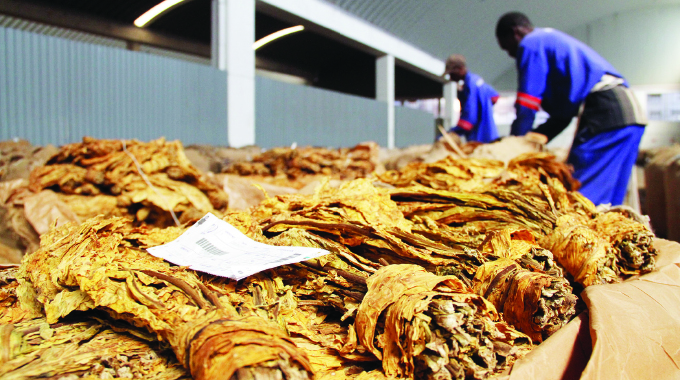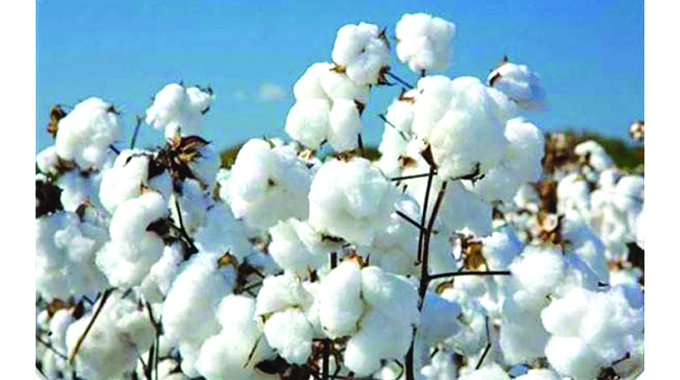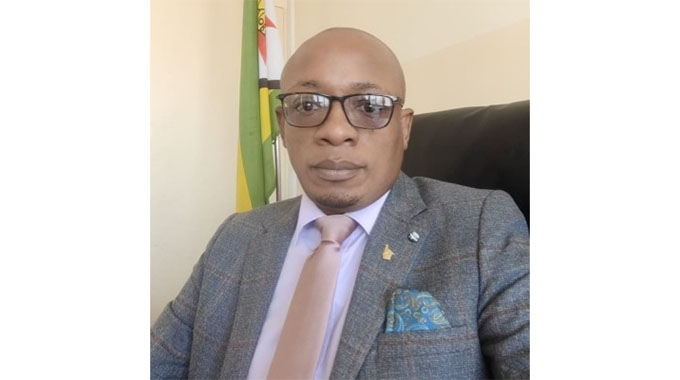Tobacco growers surpass 200 million kg

Precious Manomano Herald Reporter
Tobacco farmers have produced and sold almost as much tobacco as last season, despite the erratic rainfall and dry spells, and have made more money, the Tobacco Industry and Marketing Board (TIMB) has reported.
TIMB public affairs officer Mrs Chelesani Tsarwe said so far farmers have sold 202 million kg of tobacco valued at US$600 million compared to 206 million kg sold at US$580 million in the same period last year.
While the industry had targeted a volume of 250 million kg for 2022 season, this was hampered by the rainfall, but the actual volume is only 2 percent below last year’s volume, while the cash is 3,4 percent more.
Tobacco mop up sales officially closed last week on Wednesday at the auction floors, but contracted growers who have yet to deliver can still sell their crop.
In an interview, Mrs Tsarwe said the 2022 tobacco marketing season had progressed fairly well although it was greatly affected by erratic rains.
“The 2021-2022 season was characterised by late onset of rains, with most areas receiving effective rains around end of November to early December 2021,” she said. “That was followed by a dry spell which stretched up to end of December.
“Then incessant and excessive rains in January caused water logging, nutrient leaching, and disrupted weeding and other agronomic operations. That adversely affected the quality and quantity of tobacco produced by some growers this season.”
Last week, that average price was US$3,06 /kg compared to US $2,79 /kg during the same period in 2021. This is an indicator that prices were firmer this season.
Mrs Tsarwe urged tobacco growers to treat farming as a business and follow proper agronomic practices right from the seedbed until post-harvest.
TIMB is working towards standardising the inputs package offered by contractors to growers adding that sustainability in tobacco production need to be addressed. There have been complaints that some contractors do not follow best practice when it comes to inputs, but the standard package should end that problem.
TIMB acts as the regulator for the whole industry, and licences growers, contractors and merchants. This tight regulation has meant that tobacco has far fewer disputes than some other sectors, and that the TIMB is continually upgrading its requirements to ensure that disputes simply cannot arise.
“We have come up with a compliance administration framework that every registered contractor should meet,” said Mrs Tsarwe. “It stipulates the minimum inputs package for small scale and large-scale growers. These conditions also stipulate the last date for inputs distribution for those who are contracted.
“Sustainability issues in tobacco production also have to be addressed. Under TIMB’s new sustainability department, we are encouraging tobacco growers to establish woodlots on their land of at least 0,3 hectares per every hectare of tobacco grown.
“Working with the Eliminating Child Labour in Tobacco Foundation, TIMB is driving action to eliminate all forms of child labour in tobacco production in Zimbabwe by 2025.”
Mrs Tsarwe said side marketing was greatly affecting tobacco production adding that TIMB will continue coming down hard towards ending it.
Zimbabwe Commercial Farmers Union president, Dr Shadreck Makombe, said tobacco season was fair and prices were good.
“Tobacco prices were good but funding was the major problem which affected tobacco growers. On the other hand, input costs are also expensive. We are expecting more farmers to join tobacco farming next season,” he said.
Tobacco farmers who spoke to the Herald said they will continue with tobacco farming to sustain themselves.
Mr Tinashe Chigumbo (41), a farmer based in Rusape said tobacco farming helped him to sustain his family. “I started off with help from friends and agricultural extension officers in the community and as time progressed I gradually improved. Had it not been for the information I received, I would not have been where I am today,” he said.
Since 2008, the year he ventured into tobacco farming, Mr Chigumbo testified that besides earning a sound income, tobacco farming has come with a lot of infrastructural development at his farm.
“It is through this business that my dream has come true, I now have a decent home, cattle, farming equipment, something that was a pie in the sky when I was in formal employment,” he said.
Another farmer Mr Tawanda Kashiri said that next year she expected much more bales.
“Next year I am expecting to bring more than 2 000 kg of better quality leaf to the market,” said Mr Kashiri.
He also grows peas and beans for the Mbare Musika Market.
“I am into a selling business as well,” said Mr Kashiri. “I grow peas and beans and now that I am into tobacco I will also be selling clothes during the off season so that I keep generating money.”
Tobacco is ranked as one of the most economically important non-food crops in Zimbabwe, earning billions in local currency equivalent annually. The growing of the crop contributes significantly to improving the livelihoods of many people, from the farmers in the main tobacco areas, to the merchants and to the processing done locally before the leaf is exported.
This provides a lot of jobs.









Comments